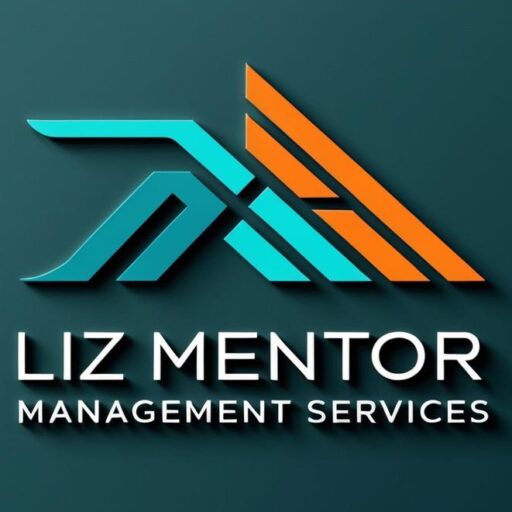HR Policies Your Small Business Actually Needs (And Which Ones Can Wait)
When you think of HR policies, you might picture a giant binder, legal jargon, and pages that no one ever reads. Maybe you’ve glimpsed the big-company handbooks and thought, “There’s no way my small team needs all this.”
Here’s the good news: you don’t.
In small businesses, HR policies should be lean, clear, and only as complex as they need to be. Policies aren’t about control; they’re about creating clarity, building trust, and protecting your business — without the bureaucracy. And while you don’t need every policy under the sun, there are a few you absolutely can’t skip. The rest can wait until your business grows.
In this guide, we’ll explore which HR policies your small business really needs, which ones you can hold off on, and how to make them readable, practical, and effective.
Why Policies Matter (Even for Tiny Teams)
You might be thinking, “We’re just five people — do we really need policies?” or “I trust my team, so it feels unnecessary.” Both points are valid. But here’s the truth: policies aren’t about micromanaging. They’re about providing guardrails that keep your business safe and your employees aligned.
Policies create consistency. They set expectations so that everyone — from your newest hire to your most seasoned team member — knows where they stand. Imagine you don’t have a clear disciplinary process. Someone makes a mistake, and suddenly emotions run high. Without a policy, the situation can become chaotic, subjective, and even legally risky.
Clarity builds trust. People want to know that rules are fair and that processes are consistent. Even a small team benefits from knowing what’s expected, how to escalate issues, and where to find guidance. Think of HR policies not as a bureaucratic hurdle, but as a foundation for a healthy, functioning workplace.
The Five Policies Every Small Business Should Start With
When you’re starting out, you don’t need a 50-page manual. You need five policies that address the essentials — the ones that protect your business, keep you compliant, and support your people.
Leave Policy
Leave policies often seem straightforward, but clear documentation prevents confusion and frustration. Your policy should outline how much annual leave employees get, how it should be requested and approved, and any rules about carryover or encashment.
Don’t forget other forms of leave: sick leave, family responsibility leave, and unpaid leave.
For example, in a small marketing agency, an employee might assume that sick leave can be taken at any time without notice. A concise leave policy sets expectations: employees must notify their manager at least an hour before their shift if they can’t attend work due to illness. This avoids misunderstandings and keeps operations running smoothly.
Keep it simple. Your team doesn’t need paragraphs of legal language — they just need to know the rules and how to follow them.
Code of Conduct / Behaviour Guidelines
Even small businesses benefit from clarifying expectations around professional behaviour. A code of conduct should define basic rules for communication, punctuality, respect, and teamwork.
It doesn’t need to read like a legal document. Instead, it should offer guidance: what’s acceptable, what isn’t, and where to find support if questions arise.
Consider a retail store where employees interact with customers daily. A brief behaviour guideline outlining professionalism, respect for colleagues, and customer interaction standards helps avoid misunderstandings and sets a clear standard from day one.
This policy also acts as a reference point if disciplinary issues arise, so you’re not relying on memory or informal conversations.
Disciplinary Policy
Even if your business operates informally, a clear, fair disciplinary policy is essential. It protects both the business and the employee.
A simple policy should explain what constitutes misconduct, how investigations are handled, and what steps will be taken — from verbal warnings to written notices and possible termination. Include the right to respond and the process for appeal.
For instance, if an employee repeatedly misses deadlines in a small tech startup, having a disciplinary policy allows you to address the issue objectively. You can reference documented steps, ensuring the process is fair and legally defensible.
Grievance / Complaints Policy
Your business needs a clear process for employees to raise concerns or complaints. Without it, small issues can escalate into major conflicts.
Outline how an employee can submit a grievance, who they should approach, and what the next steps will be. This policy signals that you take fairness seriously and that employees have a safe avenue to voice concerns.
In practice, this might look like an employee who feels overlooked for a project. With a grievance policy, they know exactly whom to approach and how the complaint will be handled, reducing tension and increasing transparency.
Remote Work or Hybrid Guidelines (If Applicable)
With hybrid and remote work becoming more common, even small businesses need clear expectations. This policy should cover availability, communication tools, boundaries, and any reimbursement for equipment or data.
For example, a small software company with developers working from home might specify that all employees must be available for video calls between 10 am and 3 pm, check Slack messages twice daily, and log hours in a shared timesheet. Without clarity, assumptions about availability and productivity can create frustration on both sides.
Policies That Can Wait
Not every policy needs to exist from day one. Many are “nice-to-haves” that become relevant as your team grows or as specific situations arise.
Examples include performance management policies, promotion or salary review guidelines, dress codes, data protection and email usage rules, conflict of interest policies, social media usage rules, and drug/alcohol policies (if relevant).
A practical rule of thumb: if a policy hasn’t been needed yet or only applies to a very narrow scenario, it can wait. Focus first on what prevents risk and builds clarity for your team.
Keep Policies Readable and Human
Even the most critical policies fail if no one reads them. One of the biggest mistakes small businesses make is overcomplicating policies.
To avoid this, keep your documents short, clear, and accessible. Two to three pages per policy is usually enough. Avoid legal jargon where possible and explain things in plain language.
Policies should also be living documents. Review them at least annually to ensure they remain relevant as your team and business evolve. Store them in a shared folder, or provide printed copies if necessary, so employees can easily access and reference them.
Don’t Overthink the Format
You don’t need a lawyer to draft every policy. What you do need is clarity, consistency, and a structure that grows with your team.
Each policy can follow a simple format: start with a title, explain the purpose, define the scope (who it applies to), outline the guidelines or rules, and provide instructions for what to do or who to contact for support.
For example, your leave policy might start with:
Title: Leave Policy
Purpose: To ensure clarity on employee entitlements and processes for leave requests
Scope: Applies to all permanent and temporary employees
Guidelines: Annual leave, sick leave, family responsibility leave, unpaid leave, request process
Who to Contact: HR or team lead
This approach is simple, clear, and functional. Done is better than perfect — especially when your team is small and you need policies that are actually used.
Practical Examples of Lean Policies in Action
Consider a small marketing agency with ten employees. They implement a simple leave policy that explains how to request time off and how much leave employees are entitled to. They also have a short code of conduct covering communication expectations and a basic grievance policy.
When a team member raises a concern about workload distribution, the grievance policy provides a clear path. Management can handle the issue objectively, referencing the policy without debate or confusion. Productivity and morale improve, and the business maintains a culture of trust — all without a 100-page HR manual.
Another example is a retail startup where employees work hybrid shifts. A one-page remote work guideline sets clear expectations for communication, working hours, and equipment use. This prevents misunderstandings, ensures accountability, and protects the business from disputes.
Even in micro-teams, having these simple policies allows HR or the business owner to handle situations efficiently, consistently, and fairly.
Final Thoughts: Policies Don’t Make You Corporate — They Make You Clear
Small businesses often worry that creating policies will make them “too corporate” or bureaucratic. The reality is the opposite. Well-crafted, lean policies provide clarity, prevent misunderstandings, and protect both the business and employees.
Start with the essentials: leave, code of conduct, disciplinary, grievance, and remote work policies. Focus on clarity and readability rather than volume. Build additional policies as your team grows or as situations arise.
Remember, HR policies are guardrails, not handcuffs. They help your team understand expectations, create consistency, and ensure everyone knows what to do and who to turn to. In a small business, that clarity can prevent 90% of HR headaches before they happen.
Lean, practical, and human-focused policies aren’t a luxury — they’re the foundation of a thriving small business.



